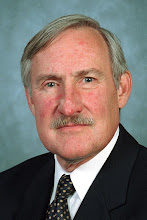We've spent billions on enforcement of drug laws, yet few (particularly few in government and policy positions) seem to ask the question, "is this the right thing to do?" Nor is the question, "is our approach genuinely making the world a better place" ever asked. In this blog I want to provide a forum for both my thoughts and yours about these questions and others that address the intersection between ethics, bioethics and substance use. Questions abound not only about policy, but about how we as private persons and as clinicians (if you share a commitment to healthcare, as I do) think about and interact with people who use psychoactive substances, whether or not that use is "excessive". I use quotation marks because one of the ways I hope this blog will unfold is to serve to question many of our definitions in this field, the assumptions underlying them, and the uses to which those definitions are put.
Some initial questions that are near and dear to my heart at this point, because I'm writing a book about them:
1. Informed consent to treatment is de riguer as a pre-treatment practice in medicine, particularly where there is evidence that a treatment can cause harm, either because it is not effective, or because it may produce iatrogenic negative effects. What does informed consent to treatment look like in most treatment programs for substance users? Is the practice of informed consent in most treatment programs or by most treatment providers ethically sound?
2. Can addicted persons give truly informed consent to treatment, and especially are they capable (in the sense of decision-making capacity) of refusing a particular treatment or treatment goal in favor of one the clinician might not see as being the best course of action? This is a debated topic in both the addictions treatment and bioethics fields in the U.S.
3. What should the components of a informed consent to treatment for substance use disorder be in order for the informed consent to pass ethical muster?
4. Is the "war on drugs" ethical? What arguments are there for and against?
5. How do the moral and ethical views of individuals play into the war on drugs?
I could come up with many more, but I invite you to comments with your answers to any or all of these questions. Happy writing!
Tuesday, March 25, 2008
Subscribe to:
Post Comments (Atom)


1 comment:
Really great to see you start up this Blog, Fred. These are just a few of many key ethical issues. i look forward to many discussions over the coming months.
Post a Comment